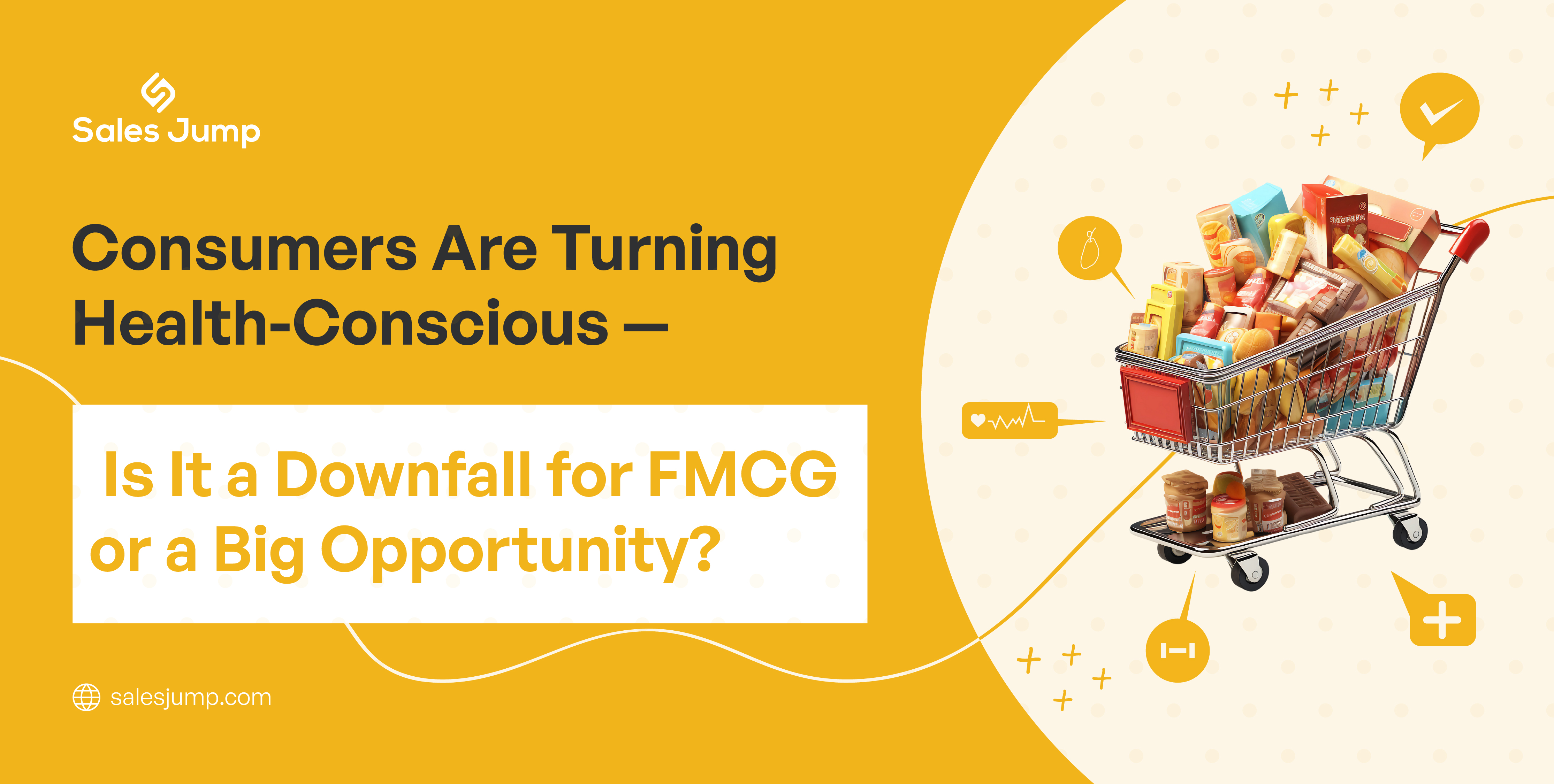Introduction: The label that changed everything
Today’s consumers don’t just buy they inspect. From checking expiry dates to decoding ingredient labels and scanning QR codes for sourcing information, the modern shopper is more informed than ever. Fueled by health trends, sustainability concerns, and digital access, awareness about packaged foods is reshaping buying behavior across India and beyond.
This isn't the downfall of FMCG. It’s a shift in direction. And for brands willing to adapt - it’s an opportunity for growth.
The rise of the conscious consumer
Several key trends are driving this evolution:
1. Health & Wellness Focus:
The demand for clean-label, organic, and minimally processed foods is rising rapidly. Consumers are actively avoiding artificial preservatives, excess sugar, and ultra-processed ingredients.
2. Sustainability Matters:
Packaging is no longer just a container it’s a statement. A significant portion of consumers, especially Gen Z and millennials, prefer eco-friendly, recyclable, or biodegradable packaging, even if it costs more.
3. Influencer and Digital Impact:
Food bloggers, health influencers, and awareness campaigns have educated the masses. Documentaries and social media movements have brought transparency and accountability to the forefront.
4. Convenience with Conscience:
With Q-commerce and ready-to-eat foods booming, consumers now expect both speed and responsibility. Clean, safe, and convenient is the new baseline.
The risk for fmcg brands that don’t adapt
Failing to respond to this shift comes with real consequences:
1. Loss of Trust:
One poor labeling choice or lack of transparency can damage reputation especially in the age of viral outrage.
2. Declining Sales of Traditional SKUs:
Ultra-processed or overly sugary products are being replaced by healthier alternatives in shopping carts.
3. Rise of Niche Competitors:
Direct-to-consumer (D2C) brands with organic, ethical positioning are capturing market share quickly, thanks to agility and sharper consumer alignment.
4. Counterfeit Concerns:
A large portion of the Indian FMCG market still faces counterfeit risks, eroding consumer confidence in packaged products altogether.
How leading fmcg brands are evolving
The good news? Smart brands are not just responding they’re thriving by pivoting toward what consumers now demand:
1. Product Reformulation:
Cutting down on artificial ingredients, reducing sugar/salt content, and introducing clean-label alternatives.
2. Eco-Friendly Packaging:
Shifting toward biodegradable materials, minimalistic design, and clear messaging about recyclability.
3. Purpose-Driven Campaigns:
Communicating the brand’s values whether it’s supporting farmers, donating profits to social causes, or promoting nutritional awareness has become essential.
4. Localized Innovation:
In markets like India, regional flavors, single-serve hygiene-focused packaging, and affordability are helping brands stay relevant.
Why this isn’t a downfall it’s a new era
✔ Let’s be clear: Packaged foods are not going away. The processed and packaged food sector in India is expected to nearly double in the next few years.
✔ But the winners will be those who align their offerings with what the conscious consumer seeks quality, transparency, safety, and sustainability.
✔ This isn’t a setback. It’s a springboard. A more informed audience means brands that innovate thoughtfully can build deeper trust and longer term loyalty.
The Role of Tech: Why SalesJump is built for this moment
As FMCG brands evolve their product lines, packaging, and market strategies, SalesJump's Sales Force Automation (SFA) and Distributor Management System (DMS) offer the tech muscle to support this evolution at scale.
Here’s how:
1. Capture Real-Time Consumer Feedback:
Field reps using SalesJump can instantly log customer feedback on taste, label clarity, packaging appeal, and more.
2. Track New Product Performance:
Launching a low-sugar variant or an eco-pack? Use SalesJump to monitor how these SKUs perform across different geographies and retailer types.
3. Faster Go-to-Market for New SKUs:
With digital order booking, distributor alignment, and territory tracking, you can accelerate product launches and measure impact quickly.
4. Data-Driven Decisions:
See what’s working and what isn’t through customizable dashboards that break down product uptake, scheme effectiveness, and outlet-level insights.
5. Territory-Based Trends:
Understand regional preferences maybe a millet-based snack does well in Tier 2 cities but needs repackaging for urban shelves. SalesJump shows you the “where” and “why.”
A Simple Roadmap: 5 Steps to Stay Relevant
| Step | Action | Powered by SalesJump |
|---|---|---|
| 1 | Audit SKUs for health and sustainability readiness | Product-level visibility across the field |
| 2 | Pilot new SKUs in selected zones | Territory-wise distribution tracking |
| 3 | Collect real-time feedback from field | Smart rep dashboards and checklists |
| 4 | Adjust based on retailer & consumer feedback | Integrated beat plans + reporting |
| 5 | Scale successful launches faster | Automated order booking & supply chain sync |
Conclusion: The future is transparent and full of opportunity
The rise of the conscious consumer isn’t a threat to FMCG brands it’s a turning point. Yes, expectations are higher. But so is the opportunity.
Today’s consumers are ready to pay more for trust, choose brands that align with their values, and remain loyal to those who listen. That’s a golden opportunity for brands that are agile, transparent, and tech-powered.
By embracing clean-label products, sustainable practices, and real-time responsiveness, FMCG companies can not only retain trust, but also gain market share in a rapidly evolving landscape.
And with SalesJump by your side equipping your field force with intelligent reporting, beat plans, SKU tracking, and guided selling tools you're not just adapting. You're leading.




